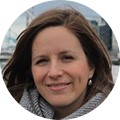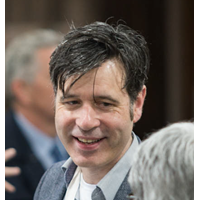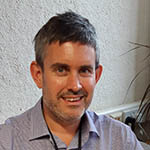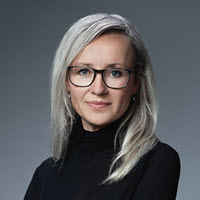The scholarship of learning development
For several years, the Research and Scholarship Working Group has supported the production and dissemination of learning development-related research. In addition to recognising the intrinsic benefits of such research, the WG has also sought to promote the scholarship of learning development practice more generally, seeing this as both an important component of professional development and a means of raising the profile and legitimacy of learning development within HE.
This, in turn, has prompted reflection on just what we (the WG, ALDinHE and the community more broadly) mean by the ‘scholarship of learning development’ – how we define it, recognise it, value it, support it, promote it etc., particularly as learning developers themselves often work in conditions in which there is little or no formalised support (e.g. time allocated) to engage in scholarship.
When thinking about the broad ways in which scholarship might be conceptualised, practised and recognised by the community, it’s clear that less formal and more immediate forms of ‘scholarly interventions’, such as blog posts, are proving to be efficient and effective ways of sharing scholarly and evidence-informed guidance, ideas and experiences.
What are we doing to help?
We will continue to support and encourage empirical research projects for dissemination, through funding, conference opportunities and mentoring, as these activities clearly benefit both those who undertake the research and the learning development profession as a whole.
In addition, we will support and champion the broad range of ways in which learning developers are engaging with, and themselves producing, more informal types of scholarship. On a practical level, this might include some of the following:
- Highlighting and celebrating the breadth of scholarship (formal and less formal) being produced by the community
- Providing space and opportunity for sharing practice, through a variety of media
- Supporting through mentoring all those who wish to develop their own scholarship.
Discover scholarship of LD stories below:

Dr Maria Kukhareva, University of Bedfordshire
My ‘LD scholarship journey’ started gradually, as a realisation, some years ago. My ‘day job’ as an Educational Developer was very much grounded in scholarship of Teaching and Learning, and, in particular, Boyer’s work around signature pedagogies. As I was observing the difference this concept made to the new lecturers’ sense of identity and teaching practice, it became clear to me, how much this type of work is needed in Learning Development.
As the ALDinHE SG member, and the Co-Chair of the RDWG, I was aware of the uneven and often heated discourse around the role LD occupies as a field in Higher Education. That, in the context of clearly needing-an-upgrade views on what rigour is and isn’t in Higher Education, made for a striking case that Learning Development is, in fact, perfectly positioned to challenge stereotypes and propose a broader view of what scholarship encompasses in the 21st century. After all, this century that saw the rise of the Widening Access agenda, breaking down barriers, and emergence of new, exciting often blended ways of learning, teaching, and – most importantly – thinking.
This resulted in us making a commitment to ‘develop and promote the scholarship of learning development; and ‘clarify what scholarship means in Learning Development’ as part of the 2019-2023 ALDinHE Strategy. Dr Carina Buckley and I presented our first thoughts at the 2019 Conference, which acted as a catalyst for opening up the Scholarship conversation and engaging the rest of the Learning Development Community. I am excited about the next steps that we’ll be taking together, and the difference this development can make in helping validate, and elevate Learning Development practice, and dare I say it – theory!

Silvina Bishopp-Martin, Canterbury Christ Church University
I have been a Learning Developer at Canterbury Christ Church University since 2012. During my time at CCCU, I have worked on the development of online learning materials, peer-mentoring schemes and embedding academic literacies in academic programmes. I have a BA in English and English Language Teaching and an MA in Teaching English to Speakers of Other Languages (TESOL), specialising on EAP, I am a ALDinHE Certified Leading Practitioner, a Fellow of the Higher Education Academy and a certified CMI Coach and Mentor. My interest in LD scholarship led me to ALDinHE and becoming a member of the Research and Development Working Group in 2016. I have since been fully committed to contributing to LD scholarship, either by reviewing research grant applications, offering feedback and mentoring applicants, joining an LD research community of practice, and producing scholarly LD outputs, either in the form of research pieces or conference presentations. In addition, I am currently undertaking a PhD on LD professional identity and its place in Academia. My research interests include academic literacies, coaching, mentoring and peer-mentoring, critical EAP, third space, communities of practice, collaborative writing and LD professionalism and identity. I am passionate about this field and the potential it has to transform students’ learning experiences in HE. I believe that developing a more robust scholarly corpus will allow LD to further establish itself as field of study.

Dr Carina Buckley, Southampton Solent University
My scholarship journey in learning development began at the end of my PhD journey, which I finished burnt out and fed up of my discipline. Having been immersed in all things human evolution for so long, it took a while for me to appreciate that there was a new world of scholarship to explore, and this began in earnest during my PGCTLHE. Although I’d been involved in ALDinHE for a couple of years by that point, I still felt stuck between my disciplinary identity and my new, learning development identity…until the ALDinHE conference in Leeds where I presented my referencing workshop using Lego. The response was so positive and enthusiastic that I successfully wrote it up for publication, and that proved a turning point for me – not in that I suddenly started to publish more, but that I became invested in seeing other people enjoy the same experience as me.
During my time as Co-Chair of ALDinHE one of my main goals was to ensure that all our activities as an association informed and supported each other, and the importance of the links between the research funding programme, the journal and conference became ever more evident. I saw it as my role to support the scholarship of others and to help colleagues recognise that we all have specialist knowledge worth sharing. Reaching the point of sufficient confidence to go ahead and share is an empowering feeling, and one we all deserve!

Steve Rooney, Aston University
My scholarship story to date begins and ends and, er,… middles(?) with ambivalence. This ambivalence concerns the role of scholarship – its purpose and place within my own practice and that of learning development more broadly. More than that, it’s also a keenly felt personal ambivalence regarding my own legitimacy and credibility as a ‘scholar’ of anything. Having given up on moving beyond this state, I have tried instead to sit with it (as they say) and to not allow it to become a too easy and self-serving alibi for inaction. On those all-too-sporadic occasions I’ve succeeded with this, and engaged in various forms of scholarly activity (from co-producing research and writing this up for publication, to engaging in the relatively freer-ranging form of blogging, to presenting work at ALDinHE and in other conference settings) I’ve found it genuinely nourishing and deeply rewarding, if also difficult and ever-fraught with anxiety and self-doubt. More recently, I’ve become interested in the role of fiction, in particular in the role of the parable, as a means of exploring some of the contradictions and challenges of educational practice and contemporary institutional life in HE. As a way of living, in other words, with terminal ambivalence!

Ian Johnson, University of Portsmouth
For LD to be recognised, sustain and grow within academia, it’s vital its practitioners can clearly articulate who we are and what we do. To succeed, surely we need a coherent epistemological base rooted in scholarship? These ideas, adapted from Peter Samuels’ 2013 paper (I reluctantly leave aside the thorny debate it raises about whether we’re a discipline, profession, field, pedagogy etc.) inspired me as I moved into researching LD through my professional doctorate. I’m equally fascinated and concerned about how our base HEI determines how we’re named, located, described and deployed differently, and about how the moral heartbeat of the work for us (emancipation) can sit at odds with others assuming we exist to fix students’ deficits. In 2018 I published in the JLDHE about these differences between the ‘demanded’ and ‘enacted’ professionalisms of learning developers, and how these are reconciled. That paper now acts as underpinning for my in-progress thesis, comparing how our work is valued by different interested groups. Understanding and articulating what our work is about should be central to the scholarship of LD – if we can do this better, we can gain more control over our future. This is my mission where scholarship is concerned!

Dr Alicja Syska, University of Plymouth
Long before I started publishing in the area of learning development, I was already an author in cultural history, writing eclectic pieces on gender, race, and representation. Transitioning into pedagogic scholarship, however, was not a natural and straightforward process. Learning development as a field seemed nebulous and I spent several years considering myself as an LD practitioner, rather than a researcher. While I thought deeply about how students learn, I lacked confidence to contribute to knowledge production. My disciplinary training, however, taught me that understanding the context and communicative practices were the keys into any discipline and this is how I decided to approach the challenge of transforming my practitioner knowledge into research outputs.
In order to orientate myself in the field, I joined the Editorial Board of the Journal of Learning Development in Higher Education. There, I tested my writing apparatus while becoming immersed in the current debates in LD scholarship. My first publishing experience in LD involved writing collaboratively a community-sourced literature review on academic literacies, which was a brilliant initiation not only into the field itself but also into the practice of collaborative writing. Subsequently, I was involved in another collaborative project on peer reviewing, followed by pieces written solo and with colleagues in the area of both LD and visual history. I also became an active peer reviewer. The more I was writing, reviewing, and publishing, the more urgency I felt to produce, which confirmed the old stoic truth that ‘what stands in the way becomes the way’ – the only way into publishing is by publishing.
Currently, I am working on a collaborative project designed to support new authors in learning development while also leading the JLDHE, which champions new opportunities for authors in LD and helps energise our scholarly ecosystem.
